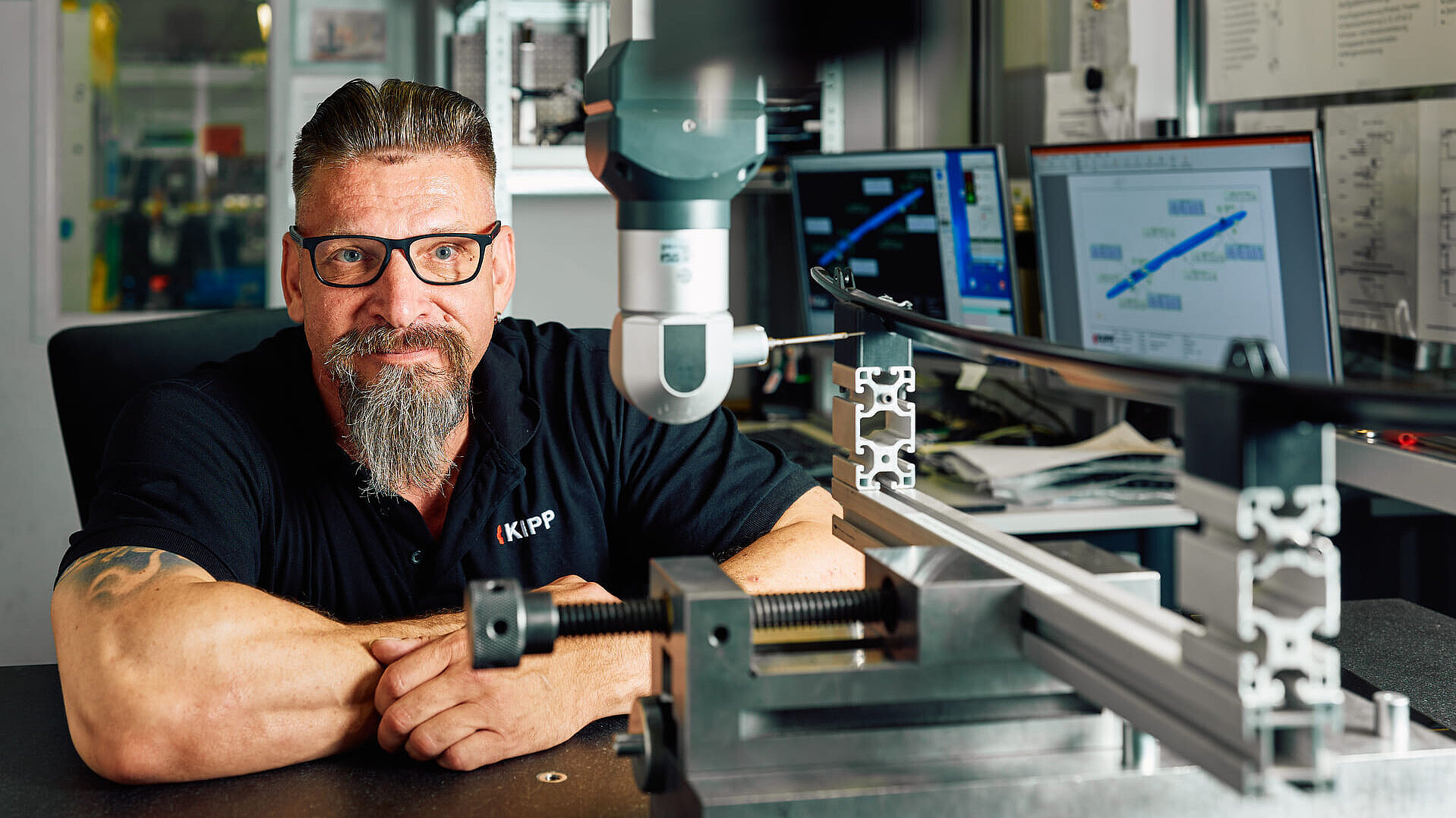Industrial mechanics assist in the entire production process at KIPP, which means new, technically engaging challenges on a daily basis.
Filing, sawing, measuring, turning and milling on computer-controlled machines – the industrial mechanic masters every technical task going. Which is a good thing. Because as skilled workers, industrial mechanics take on responsibilities in every area of metal and plastics processing and assembly. Setting up and operating machines and systems, monitoring the manufacturing process, quality assurance, tool and fixture construction (which involves making complex casting tools and fixtures) – the industrial mechanic is needed everywhere.
Summary: Industrial mechanic is one of the best-known and most popular occupations in industrial metalworking among young people interested in technology.
What you have to have:
- Good secondary school leaving certificate, intermediate school leaving certificate
- An interest in maths, physics and geometry
- Good technical understanding and spatial imagination
- Enjoy working with metal, tools, machines and computers
- Accuracy
- Flexibility
- An independent and meticulous approach to work
- Commitment and team spirit
What you can expect – an overview of training at KIPP:
- Start: 1 September
- Duration: 3.5 years
- Place of training: Sulz-Holzhausen
- Vocational school: 1 – 2 x per week Oberndorf Commercial School Further information: www.bos-schule.de
- Training departments
A personalised progress plan ensures that you get to know the following areas.
Basic mechanical training / training workshop (first year of training)
General manufacturing, tool engineering, automated turning, foundry, quality assurance, tool management. - And after that?
After training you can take up a position as an expert in various areas of production, where you’ll work independently and be given your own responsibilities.
And you will also have
the opportunity to train on and become an industrial master metal craftsman, or a technician. Because even after training, learning remains the key to professional development.

